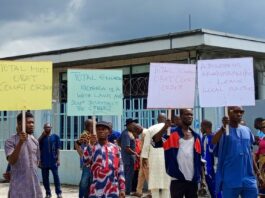By Paul Emeka Chimodo
Nigeria
The bid to achieve a cashless economy in Nigeria is about to hit another stage, as various commercial banks have begun notifying their customers about the proposed fees for deposits and withdrawals, with effect from April 2020.
In September 2019, the Central Bank of Nigeria (CBN) announced that there would be charges on deposits and withdrawals for both corporate and individual accounts when depositing cash above a certain threshold.
For individual accounts, cash transactions above ₦500,000 ($$1,370) attract 2% and 3% processing fees for withdrawals and deposits respectively. As for corporate accounts, processing fees of 5% and 3% are charged on cash withdrawals and deposits above ₦3 million ($8,219).
The CBN kickstarted this process in five states: Lagos, Ogun, Kano, Anambra, Abia, Rivers, and the Federal Capital Territory (FCT) in addition to the already existing charges on withdrawals.
We speculated that these states, strategically located in various geopolitical zones in Nigeria, were chosen as a result of the higher rate of internet penetration, and financial inclusion. For now, it appears the whole nation is prepared to experience it.
The use of e-payment channels seems to constantly be on the increase, as evidenced by the latest figures from the Nigerian Inter-bank Settlement System (NIBSS).
But these figures have not translated to a reduction in the use or circulation of cash.
Despite plans and various directives to drive cashless adoption, the amount of cash being printed by the CBN annually has constantly been on the increase.
To this effect, the CBN governor, Godwin Emiefele has reportedly urged Nigerians to adopt e-payment channels, revealing it costs much more than ₦20 to print a ₦20 note.
While this policy is a laudable initiative that could reduce the amount of cash in circulation, it remains to be seen if it will be enough to drive cashless adoption.
With a per capita income that averages at $2,222 (₦800,000) annually, the average Nigerian might need roughly 8 months in order to save up to $1,370 (~₦500,000).
Seeing that in most cases, Nigerians live on or below minimum wage, and has a predominantly cash-based culture, will this initiative really encourage cashless adoption?



